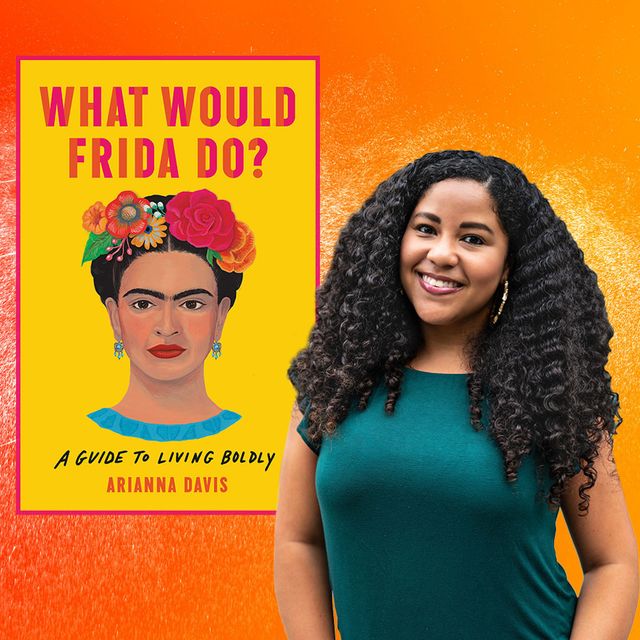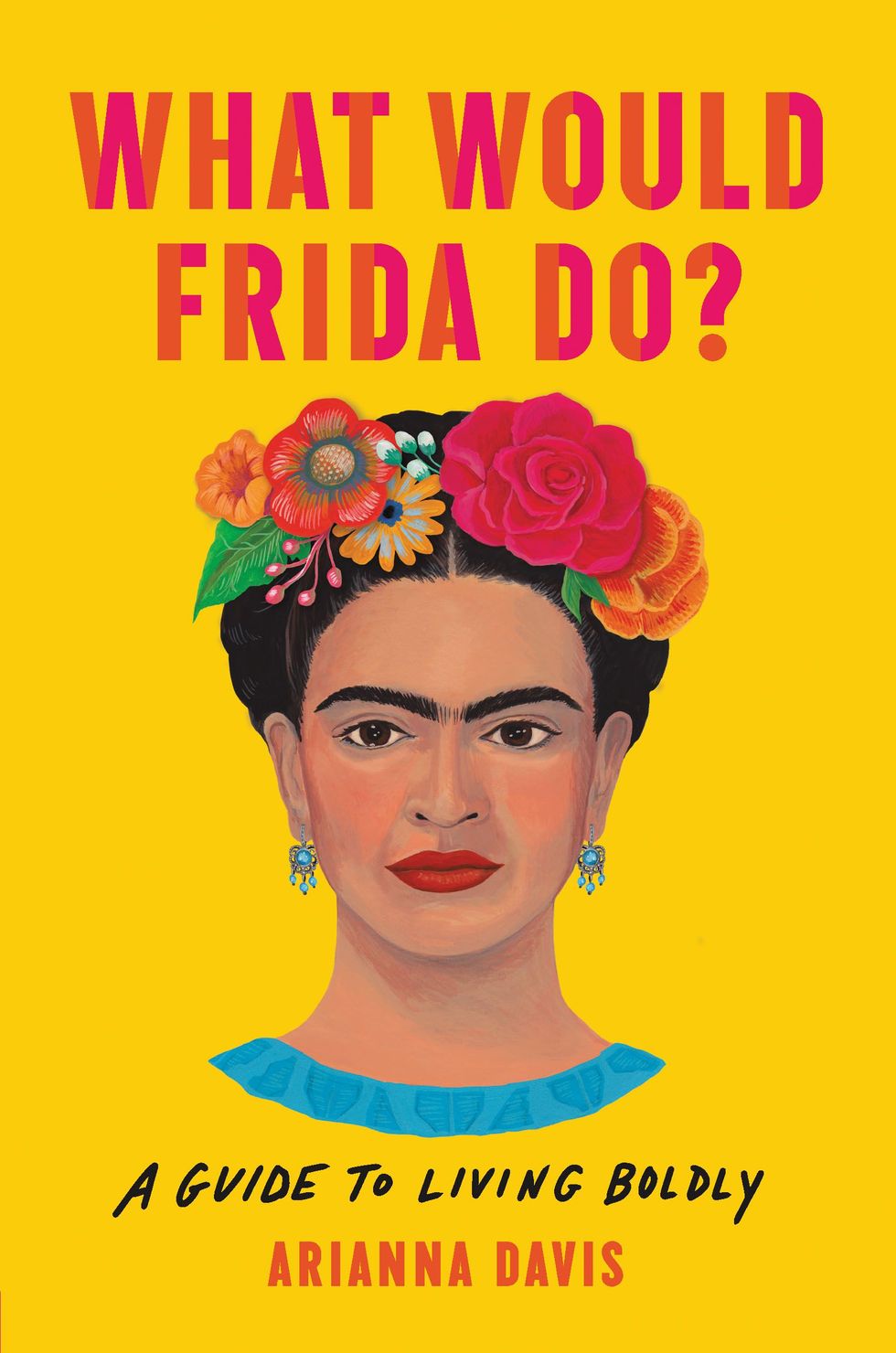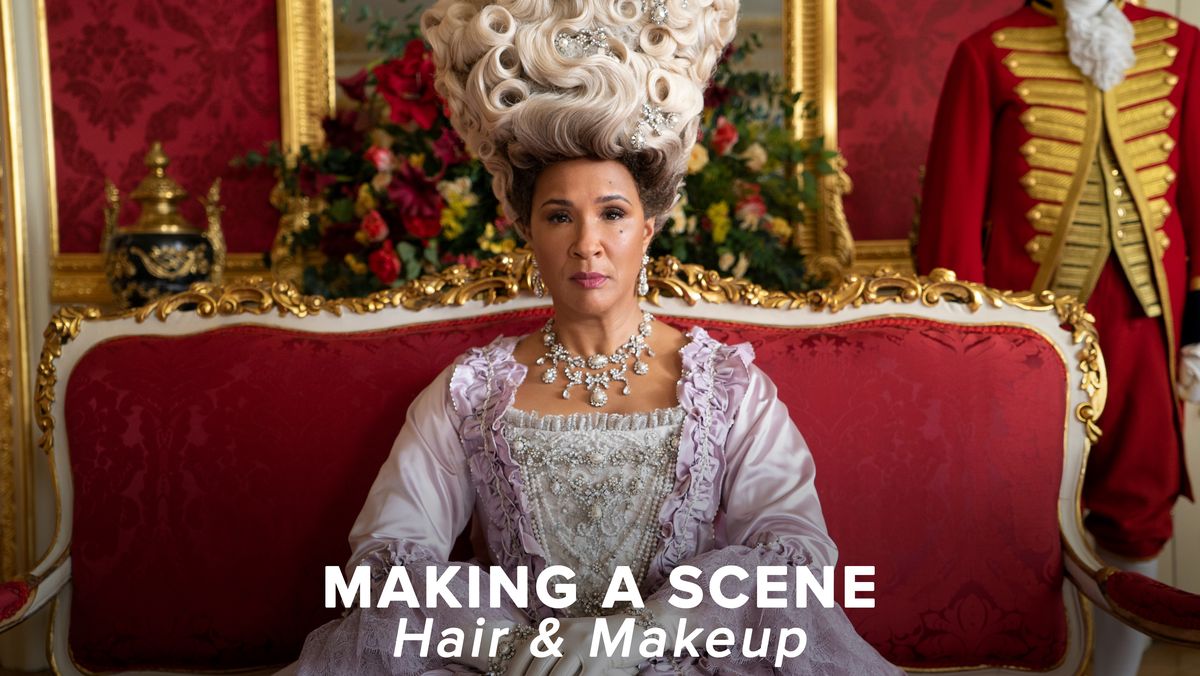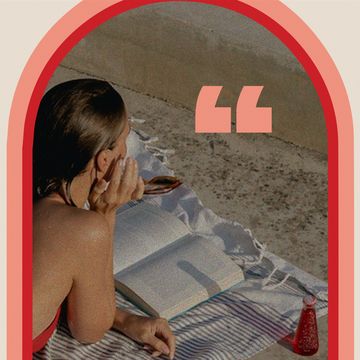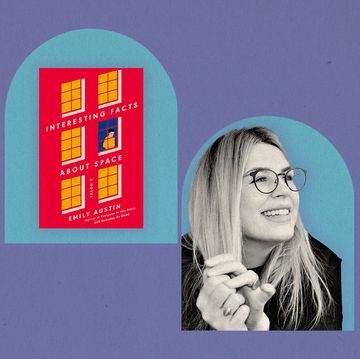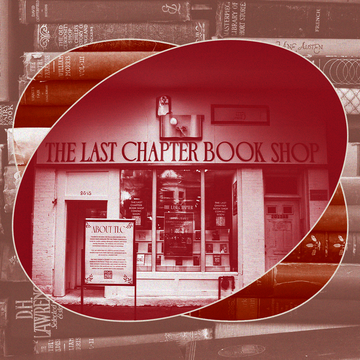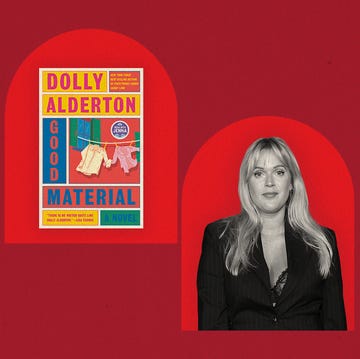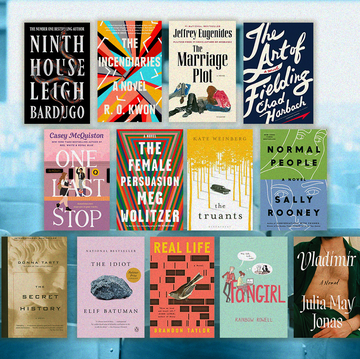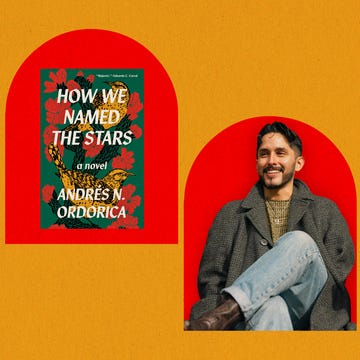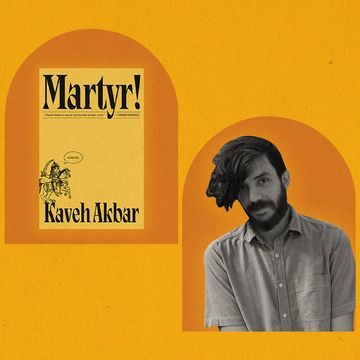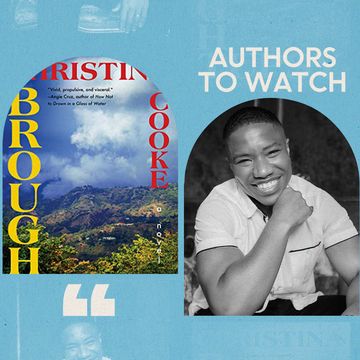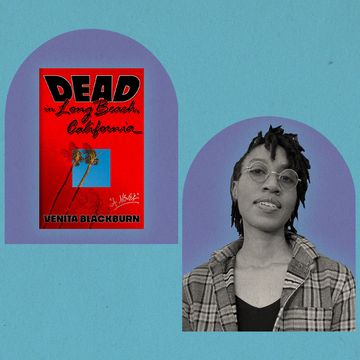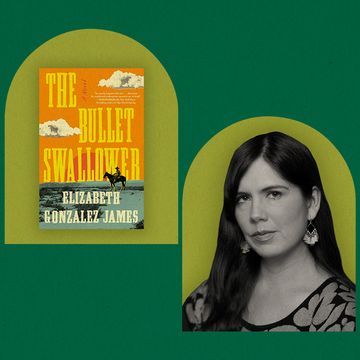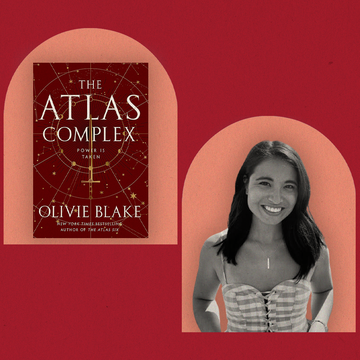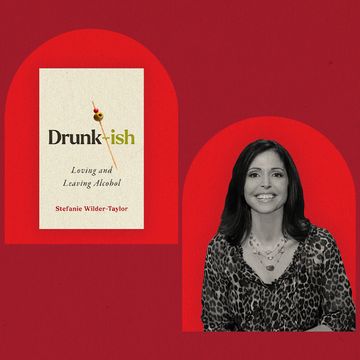Arianna Davis has been extremely busy since she helped launch OprahMag.com in 2018. But now the digital director and author is ready to introduce the world to What Would Frida Do?: A Guide to Living Boldly, her debut book that aims to teach us how to use our voice with courage and purpose, just like the acclaimed Mexican artist did.
After listening to Davis talk about her book, it’s clear that this is more than just tome about being inspired by Frida Kahlo — it’s a reflection of Davis’ history, especially as a Afro-Latinx woman, while simultaneously serving as a vehicle for discussion, awareness, and self-advocacy.
Ahead of its release, Shondaland spoke with Davis about the process of writing her book, her connection to Kahlo, and how she hopes conversations about heartbreak and grief will change. Most importantly, she has a powerful message for women struggling to make their mark in the world and proof that no obstacle is too large to stop you from living life to the fullest.
ALICIA RAMÍREZ: I love your writing and feel deeply seen when I read your work. Did you always know you were going to be a writer?
ARIANNA DAVIS: First of all, I really appreciate you saying that! I've always been one of those rare people who has always known what she wanted to do. I was always a really big reader, I read The Baby-Sitters Club growing up, and I always had people along the way who affirmed to me that I was a good writer, so it was ingrained in me at an early age that writing was something for me.
I was really into online blogging in high school and had a passion for writing, but I went to college to study journalism. I studied journalism at Penn State, and I thought I would get into newspapers because magazines were much more glamorous. It didn't seem like something for a brown person who didn't have tons of money to move to New York City and intern and have access to, so I took the newspaper route to be the brown Lois Lane.
AR: What Would Frida Do? can be described as genre-bending because it combines self-help and biography. How did filtering these experiences and research through the constraints of genre change how you understood Frida's story?
AD: I always thought that I'd write a book one day. It happened backward when an agent reached out to me because Seal Press was interested in publishing something around Frida’s legacy. They were fans of my work and heard through the grapevine that I was a fan of Frida's and approached me. At the time, I'd just rejoined O, The Oprah Magazine in 2018 to launch the website for the magazine, and it was a crazy time in my life — really late hours and I had just booked a team. I was already doing a lot and taking on another project was just overwhelming.
Being Latinx and growing up with a Puerto Rican mother, I was aware of Frida, but it wasn't until I was in high school that the lifelong fascination began. She was such a bold and empowered woman truly ahead of her time. In addition to her incredible art, she has such an incredible life story and was always her most authentic self despite many obstacles. After seeing that movie, I became that person everyone would think that if there's a Frida exhibit, I was going, reading biographies, and had quotes in my apartment. Frida became an icon and an inspiration to me.
The idea of writing a book about her was exciting, but there are so many books about Frida. I wanted to tell her story for a new generation who hasn’t read the biographies or doesn’t know her story but also explore why she’s on so many murals, tote bags, t-shirts, and why we’re so intrigued by her and at the same time look at the lessons that we can learn from her.
AR: How did you wrestle with writing about loss and addressing the pitfalls of discussing grief and sexuality when these topics are still taboo in Latinx culture?
AD: I had to shine a light on every aspect of Frida. One of the things is so apparent in her artwork and her writing was that she didn't censor herself or any piece of her life. Frida, for as bold as she was, as boundary-breaking as she was, she also dealt with so much pain and grief. These emotions come through in her paintings. I couldn't share Frida's story and not talk about her heartbreak, the cheating, and how she became a successful artist without talking about how often she doubted her talent and how often she struggled. I had to tell her story as truthfully and authentically as possible and not shy away from taboo topics like grief or heartbreak.
AR: Which of her paintings was the first to have a significant impact on you?
AD: That's a hard question because, at this point, I've consumed so much information. Whenever I think about The Two Fridas, it gives me chills. On the left side, there's a Frida dressed more femininely and more traditionally. That's the more accessible version of her to society, and on the right, Frida is wearing more androgynous clothing. You can see the Frida that she showed to the world and the real Frida. Many women will relate to the idea of there being two versions of themselves. The version you really are on the inside and the version you present to the world. It's emblematic for so many of us because it's been very helpful as a woman period and as a woman of color.
AR: This brings me to the idea of representation in media because people who aren’t white are often asked to open the doors for others. Because of this political moment that we’re in, do you feel like your view has shifted in terms of what you want to do and make?
AD: After the death of George Floyd and the Black Lives Matter movement had another resurgence, I found that a lot of my colleagues and a lot of people in the industry suddenly cared about representation and diversity and hiring a diverse team. Many people turned to me — as you know, I’m one of the few in a leadership position, so a lot of people were turning to me for how I’ve always managed to make OprahMag.com such a diverse and layered publication and how I managed to have such a diverse team. It was simple for me because it’s part of who I am. I’m Black and I’m Latinx. My world is very diverse just because of who I am and so hiring a homogeneous team and only hiring one type of person is almost irresponsible. I have a responsibility to open the door for other people of color, but I also believe it’s the right thing to do. I’m the digital director of a website, and I want to ensure that our website is publishing content that’s going to matter to different people.
AR: How has Frida impacted you? Have you learned anything from her?
AD: I hope What Would Frida Do? inspires readers to be bolder and live life a little more. These are really the core lessons I learned when studying Frida. We'll inspire people to realize you only get one life no matter what obstacles are in your way. Make the most of it and leave your mark.
Alicia Ramírez is a New York-based journalist covering arts and entertainment, culture, and identity. Her writing has appeared in O, The Oprah Magazine, Zora by Medium, TDF Stages, HelloGiggles, and Remezcla, among other publications. Follow Alicia on Twitter at @aramirezgar31.
Get Shondaland directly in your inbox: SUBSCRIBE TODAY
